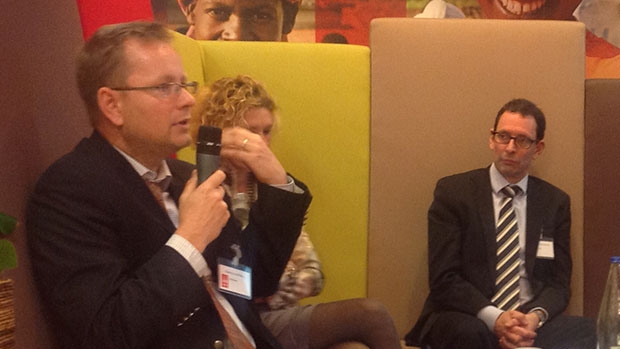February 11, 2014, The Hague, Netherlands -- Dutch NGO Cordaid hosted a presentation of the World Development Report 2014 Risk and Opportunity : Managing Risk for Development at its offices in the Hague. Following a presentation by Rasmus Heltberg, one of the World Bank's lead authors of the report, panelists Simone Filippini, CEO of Cordaid, Jelte van Wieren, Head of Humanitarian Aid and Reconstruction at the Netherlands Ministry of Foreign Affairs, and Herbert Schilthuis, Director Global Health Affairs, Heineken, shared their views on the reports' recommendations and their own experience managing risk in both the public and private sectors. The discussion looked at all areas of risk from financial, to natural disaster to health risks to political and household level risks and focused on the need for proper incentives to ensure that risk management is imbedded in planning processes. Participants, representing Dutch civil society, government, and academia provided examples of successful risk management, such as community-driven disaster risk reduction programs in Africa and some of the Netherlands own practices in water and flood management.
More information on the Cordaid website note on presentation.

